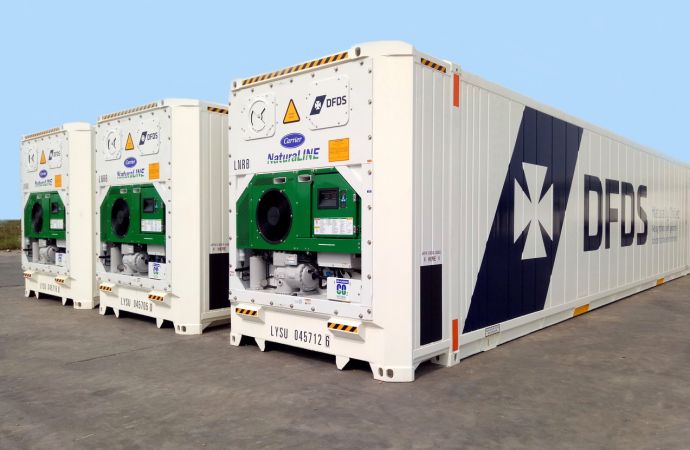Following the announcements of Daimler and Volkswagen in the recent weeks that the refrigerant HFC1234yf will not be used in their vehicles due to safety concerns, R744.com has asked some research institutes and companies involved in CO2 mobile air conditioning production if they see an opportunity for CO2 to make a come-back in the EU. In a recent press release a German NGO and an automotive club urged the automakers to start using the

“Definitely, the recent announcement of Daimler is a milestone to the introduction of CO2 as a refrigerant in the automotive industry as there are no other alternatives as efficient, safe and ecological in sight,” said Mr Constantin Schmitt, President of Konvekta AG to R744.com.
“For more than 10 years, among western scientists in the field of thermodynamics, it has not been a question anymore if CO2 will be the refrigerant of the future, but only when it will start to substitute other refrigerants,” he added.
R744 could be a long-term alternative for MAC
According to Mr Armin Hafner of SINTEF, the largest independent Scandinavian research organisation, “R744 is a sustainable, long term alternative for MAC applications, especially when taking into consideration the trend towards more and more electrification/hybridisation of the car fleet. OEM's know about the superior performance of R744 MACs, also with respect to all year usage of the system, i.e. high efficient operation during summer conditions as well as heat pump during the cold season.”
Günter Lang, Head of Area Thermodynamics at the Virtual Vehicle Competence Center said: “We are currently waiting for statements of the other German OEMs. If they would also refuse to use R1234yf as a refrigerant, we clearly see an opportunity for a come-back of R744 as a sustainable long-term solution for mobile air conditioning.”
Industry continues to innovate the CO2 technology
When asked about the technological developments that the AC suppliers have made in recent years, Mr Schmitt of Konvekta noted that even though German car manufacturers did not abide to their decision in 2007 to use CO2 in mobile air conditioning, “the AC supply industry continued to mature the technology and continued to innovate, i.e. CO2 – air conditioners cooling indirectly via a water-glycol circuit allowing easy adaptability to new models, standardization and reduction of downtimes as well as CO2 –based heat pumps.” According to Mr Lang, development of electrical driven compressors for R744 has been an important recent innovation.
“The main remaining issues for the migration to CO2-based air conditioners and refrigeration systems are economies of scale for the hardware and training of technicians in the value chain – the same challenges like for any other new technology in any industry,” according to Mr Schmitt.
R744 – efficient refrigerant for electric cars
“In the recent years we have conducted a project ‘Highly efficient cooling and heating system for hybrid and electric vehicles’ using CO2 as refrigerant that has proven the functioning and efficiency of a reversible R744 AC system that can also be operated in heat pump mode,” said Mr Lang of the Virtual Vehicle Competence Center. Mr Schmitt of Konvekta highlighted that CO2 based heat pumps are crucial for keeping a better range of electric cars in winter while doubling the energy efficiency as compared to other heating technologies.
“OEM's know about the superior performance of R744 MACs, also with respect to all year usage of the system, i.e. high efficient operation during summer conditions as well as heat pump during the cold season,” added Mr Hafner of SINTEF.
DUH and VCD urge carmakers to move to CO2
“Finally, the German automotive industry follows the conclusions published by Deutsche Umwelthilfe (DUH), the German Federal Environment Agency and the Federal Institute for Material Research already four years ago. This will finally take the dangerous refrigerant 1234yf to grave,” stressed Dorothee Saar, Head of the Traffic and Air Pollution Department at DUH in a press release of 12 November 2012.
Neither Daimler nor VW have yet announced when they are planning to move to a climate-friendly, safe and sustainable alternative. DUH and the German Automobile Club (VCD) have therefore urged the automakers to start using the CO2 refrigerant in all new models as of 2013.
To promote sustainable and safe CO2-based air conditioning, DUH together with VCD launched the campaign ‘PRO KLIMA’ two years ago. The two organisations inform consumers about the environmental effects of mobile air conditioning systems and are committed to natural refrigerants.
“For more than 10 years, among western scientists in the field of thermodynamics, it has not been a question anymore if CO2 will be the refrigerant of the future, but only when it will start to substitute other refrigerants,” he added.
R744 could be a long-term alternative for MAC
According to Mr Armin Hafner of SINTEF, the largest independent Scandinavian research organisation, “R744 is a sustainable, long term alternative for MAC applications, especially when taking into consideration the trend towards more and more electrification/hybridisation of the car fleet. OEM's know about the superior performance of R744 MACs, also with respect to all year usage of the system, i.e. high efficient operation during summer conditions as well as heat pump during the cold season.”
Günter Lang, Head of Area Thermodynamics at the Virtual Vehicle Competence Center said: “We are currently waiting for statements of the other German OEMs. If they would also refuse to use R1234yf as a refrigerant, we clearly see an opportunity for a come-back of R744 as a sustainable long-term solution for mobile air conditioning.”
Industry continues to innovate the CO2 technology
When asked about the technological developments that the AC suppliers have made in recent years, Mr Schmitt of Konvekta noted that even though German car manufacturers did not abide to their decision in 2007 to use CO2 in mobile air conditioning, “the AC supply industry continued to mature the technology and continued to innovate, i.e. CO2 – air conditioners cooling indirectly via a water-glycol circuit allowing easy adaptability to new models, standardization and reduction of downtimes as well as CO2 –based heat pumps.” According to Mr Lang, development of electrical driven compressors for R744 has been an important recent innovation.
“The main remaining issues for the migration to CO2-based air conditioners and refrigeration systems are economies of scale for the hardware and training of technicians in the value chain – the same challenges like for any other new technology in any industry,” according to Mr Schmitt.
R744 – efficient refrigerant for electric cars
“In the recent years we have conducted a project ‘Highly efficient cooling and heating system for hybrid and electric vehicles’ using CO2 as refrigerant that has proven the functioning and efficiency of a reversible R744 AC system that can also be operated in heat pump mode,” said Mr Lang of the Virtual Vehicle Competence Center. Mr Schmitt of Konvekta highlighted that CO2 based heat pumps are crucial for keeping a better range of electric cars in winter while doubling the energy efficiency as compared to other heating technologies.
“OEM's know about the superior performance of R744 MACs, also with respect to all year usage of the system, i.e. high efficient operation during summer conditions as well as heat pump during the cold season,” added Mr Hafner of SINTEF.
DUH and VCD urge carmakers to move to CO2
“Finally, the German automotive industry follows the conclusions published by Deutsche Umwelthilfe (DUH), the German Federal Environment Agency and the Federal Institute for Material Research already four years ago. This will finally take the dangerous refrigerant 1234yf to grave,” stressed Dorothee Saar, Head of the Traffic and Air Pollution Department at DUH in a press release of 12 November 2012.
Neither Daimler nor VW have yet announced when they are planning to move to a climate-friendly, safe and sustainable alternative. DUH and the German Automobile Club (VCD) have therefore urged the automakers to start using the CO2 refrigerant in all new models as of 2013.
To promote sustainable and safe CO2-based air conditioning, DUH together with VCD launched the campaign ‘PRO KLIMA’ two years ago. The two organisations inform consumers about the environmental effects of mobile air conditioning systems and are committed to natural refrigerants.
MORE INFORMATION
Related stories




